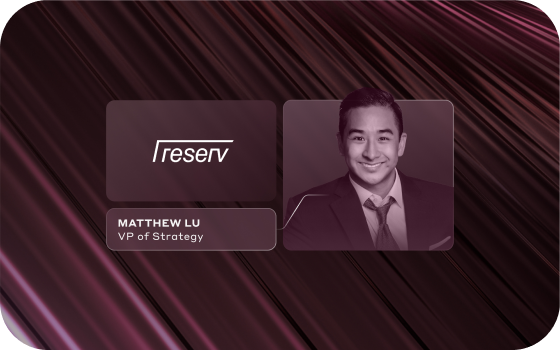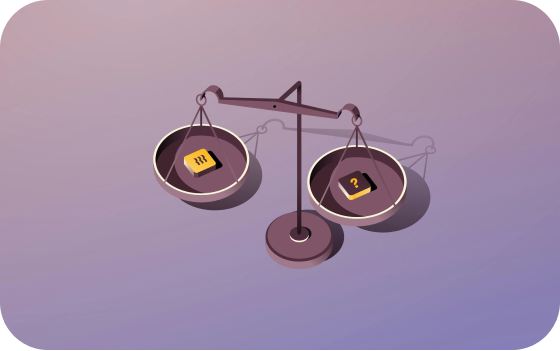Burnout is a state of physical, emotional, and mental exhaustion caused by prolonged stress and overwork, often resulting in reduced performance and disengagement. It typically arises from chronic workplace stress that has not been successfully managed.
Signs and symptoms of burnout
Burnout can manifest in many different ways, impacting both mental and physical health and well-being. Recognizing the signs and symptoms early can help manage and prevent severe burnout.
How to tell if you’re burnt out
Identifying burnout can be challenging as it often overlaps with other conditions. Some common signs of burnout include:
- Chronic fatigue: Low energy levels or feeling constantly tired and drained, even after getting enough sleep.
- Reduced performance: Difficulty concentrating, decreased productivity, and a decline in work quality.
- Emotional exhaustion: Feeling overwhelmed, detached, and emotionally drained.
- Physical symptoms: Headaches, stomach issues, frequent colds, and other stress-related physical ailments.
- Cynicism and detachment: Developing a negative, cynical attitude toward work and colleagues.
- Decreased satisfaction: Loss of enthusiasm and satisfaction with work accomplishments.
Burnout vs. stress
While burnout and stress are related, they aren’t the same. Stress typically involves feeling overwhelmed and unable to cope due to high demands. It tends to be short-term and often improves once the stressful situation is resolved.
On the other hand, burnout results from prolonged exposure to stress and leads to emotional, physical, and mental exhaustion. Unlike stress, burnout causes a sense of hopelessness and detachment, with no immediate relief even after the stressor is removed.
Burnout vs. depression
Similarly, burnout and depression share some symptoms, but have distinct differences. Burnout is often related to job stress and the work environment, but can also come from other areas of your life, such as health problems, relationships, and other stressors. Its symptoms typically improve with rest and a break from the source of the stress.
Depression is a broader mental health condition that affects all areas of life, not just work. It involves persistent feelings of sadness and hopelessness that do not necessarily improve with rest or changes in work conditions.
What causes burnout?
Burnout can be caused by many different factors. Work-related burnout might be what first comes to mind, but anyone who struggles with chronic stress—from overworked professionals to underappreciated caregivers spending long hours taking care of loved ones—can be at risk of burnout. Learn more about common types of burnout—and keep an eye out for the common warning signs, risk factors, and causes of burnout listed below.
Types of burnout
- Job burnout: Stemming from work-related stress, like heavy workload, lack of control, insufficient rewards, and toxic work culture.
- Personal burnout: Arising from personal stressors such as family responsibilities, financial issues, or lack of support.
- Interpersonal burnout: Due to difficult relationships with colleagues, managers, or clients.
- Experience burnout: Arising from chronic physical and mental stress and fatigue.
Stages of burnout
Psychologists Herbert Freudenberger and Gail North came up with the 12 stages of burnout, which can be used to help recognize the signs and note when someone might need help or intervention:
- An urgent need to prove yourself. At this stage, you fear failure and overwork yourself to the point of perfectionism.
- Overworking. Rather than trust anyone else to help with any work, you tend to do it all yourself.
- Neglecting your needs. Your work-life balance becomes poor, but you believe it’s normal. You start to neglect anything but work and look down on others who prioritize their personal lives.
- Interpersonal conflicts. As the effects of burnout become more pronounced, you begin to experience conflict with co-workers, friends, and family members.
- Revision of values. Work becomes more important to you, and other values begin to take a back seat.
- Denial. You become more bitter and cynical and continue to cut yourself off from others.
- Withdrawal. Dealing with others feels more and more like a burden. At this stage, you may self-medicate to handle the stress.
- Behavioral changes. At this stage, others in your life likely notice major changes as work is your main (or only) priority.
- Depersonalization. You begin to lose your sense of self, becoming nothing but a vessel through which work is completed.
- Emptiness. You become exhausted or ill.
- Despair. You may feel depressed or hateful toward yourself.
- Total burnout. Mental and emotional collapse requires immediate care.
How to prevent burnout
In order to prevent burnout, workers need to be proactive, employing a number of strategies to manage their stress and maintain a healthy work-life balance.
- Set boundaries: Clearly define work hours and personal time to avoid overworking.
- Take breaks: Regular breaks during work hours and taking time off for vacations can help recharge and prevent burnout. This also includes having healthy sleep habits to recharge each night before the next day of work.
- Practice self-care: Engage in activities that promote physical and mental well-being, like exercise, hobbies, and relaxation techniques. Having a healthy diet and maintaining relationships with family and friends also help promote an overall healthy lifestyle and can help combat stress and burnout.
- Seek support: Communicate with colleagues, managers, healthcare professionals, or mental health professionals to share concerns and seek help.
- Manage your workload: Prioritize tasks and delegate when possible to avoid overwhelming workloads.
What to do if you’re burnt out
If you’re experiencing burnout, take steps as soon as possible to rest and recover.
- Take time off. Use vacation days or request a leave of absence to rest and recharge.
- Create a support network. Consult a mental health professional for guidance and support. In addition, it can be helpful to find a support group for extra connection. If there isn’t one in-person near you, many exist online or on social media.
- Develop healthy habits. Incorporate self-care practices, maintain a balanced diet, exercise regularly, and get adequate sleep.
- Reconnect with your passions. Take part in activities that bring you joy and satisfaction outside of work.
- Reevaluate your job, if needed. Assess your job role and environment to identify necessary changes to prevent future burnout. You may even want to look for a new job that’s less stressful.
Frequently asked questions about burnout
Can burnout be considered a medical condition?
Yes, burnout is increasingly recognized as a medical condition. The World Health Organization (WHO) classifies burnout as an occupational phenomenon. Severe burnout can require medical intervention and professional treatment.
What are the long-term health effects of burnout?
Long-term burnout can lead to serious health issues, including mental health disorders like depression and anxiety, as well as physical conditions such as heart disease and hypertension. Chronic stress associated with burnout can weaken the immune system, making people more susceptible to illnesses.
How has the pandemic affected burnout rates?
The COVID-19 pandemic has significantly increased burnout rates, particularly among healthcare workers and other frontline employees. The pandemic has also intensified work-related stress due to increased workloads, prolonged working hours, and the emotional toll of dealing with the crisis. Remote work and the blurring of work-life boundaries are thought to have contributed to higher burnout levels in recent years.
Rippling and its affiliates do not provide tax, accounting, or legal advice. This material has been prepared for informational purposes only, and is not intended to provide, and should not be relied on for, tax, legal, or accounting advice. You should consult your own tax, legal, and accounting advisors before engaging in any related activities or transactions.









































































































